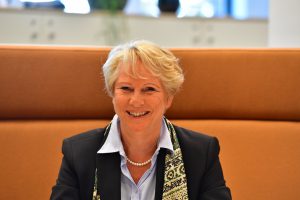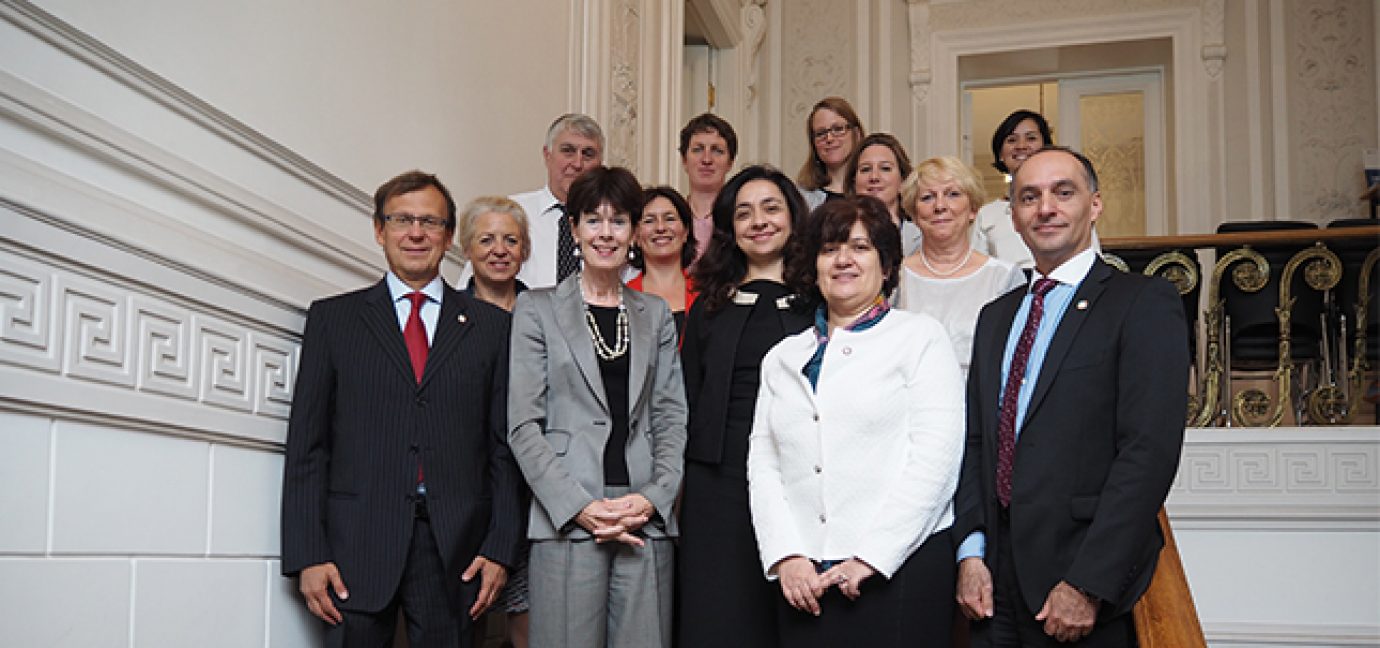Determination, global collaboration and national stewardship are essential for Ending Tuberculosis (TB), for accelerating innovation and for timely response to the ‘Global Challenge of Drug-resistant TB’ according to a recent meeting held at the Dutch Embassy in Moscow in preparation of the WHO Ministerial Conference on TB on November 16-17 in Moscow.
Ambassadors, high-level policymakers, experts, international organizations and NGOs met on 21 September 2017 at the Dutch Embassy in Moscow to discuss the current situation of the global tuberculosis (TB) epidemic in the light of new technological developments. On the eve of the WHO Ministerial Conference on TB on November 16-17 in Moscow and the special session on the TB epidemic during the UN General Assembly September in 2018, the political momentum for a breakthrough in international TB control is growing. Strong multi-sectoral political commitment in all countries was urged and the upcoming conference is viewed as an essential stepping stone to building this required momentum. TB is the leading cause of death from infectious disease and accounts for one third of antimicrobial resistance-associated (AMR) deaths. A breakthrough should be possible if we all unite for our common goal to end TB.
Highest political level
Together with the Dutch Embassy, the WHO and the Russian Ministry of Health, KNCV organized this seminar to address the global issues surrounding multi-resistant tuberculosis. Kitty van Weezenbeek, director of KNCV, is one of the driving forces behind this initiative. Next September, it will be for the first time in the UN history we have the opportunity to discuss the fight against TB at the highest political level.
Kitty van Weezenbeek:
 “Determination. Throughout my working life I have met with patients determined to win the fight against TB. Now is the chance for the world to unite behind them and join them in the fight. With the right diagnosis and the right treatment everyone can survive this horrible disease. Today, here in Moscow, we step up our quest with renewed vigor and political commitment to halt the spread of TB globally.”
“Determination. Throughout my working life I have met with patients determined to win the fight against TB. Now is the chance for the world to unite behind them and join them in the fight. With the right diagnosis and the right treatment everyone can survive this horrible disease. Today, here in Moscow, we step up our quest with renewed vigor and political commitment to halt the spread of TB globally.”
Multi-sectorial response
State Secretary and Deputy Federal Minister of Health, Dr. Dmitry Kostennikov, underscored the pervasive challenges in addressing TB in many countries of the world, including Russia. Notwithstanding substantial progress, multidrug resistant TB and the TB/HIV co-epidemic remain on the rise in the Eastern European region. There is not a single country on the globe that is not affected by TB. Russia took the initiative to host the WHO Global Ministerial Conference “Ending TB in the era of sustainable development: a multi-sectoral response”. Russia calls for international cooperation, sharing of knowledge and points to a special role for BRICS leadership.
Immediate action addressing gaps
The WHO Global Ministerial Conference “Ending TB in the Sustainable Development Era: A Multisectoral Response” aims to accelerate implementation of the WHO End TB Strategy – with immediate action addressing gaps in access to care and the MDR-TB crisis – in order to reach the End TB targets set by the World Health Assembly and the United Nations (UN) Sustainable Development Goals (SDGs) through national and global commitments, deliverables and accountability.
Health system inertia
Speakers at the meeting showed how, as a result of new drugs and regimens being available, some patients are finally accessing less toxic treatments for MDR-TB. However, access to these new regimens is far too limited: introduction and scale-up of innovations is complex and is held back health system inertia. New R&D models will propel an already extensive pipeline and continuous cycles of innovation. Progress requires political and professional determination to overcome technical, political and administrative challenges. The WHO Ministerial Conference aims to establish the conditions for the multi-sectoral momentum to drive required change and pace for impact, through implementation and R&D, in-country and globally.
Key messages
The key messages of the meeting emphasized the urgency of addressing antimicrobial resistance (AMR) and TB as being one of the main drivers of AMR , also in the context of the interlinkages between the 17 Sustainable Development Goals;
- International collaboration, global stewardship, in-country leadership, determination and a multi-sectoral approach are essential;
- R&D and innovation are crucial components, healthy pipelines require new R&D and funding models to ensure the development of new regimens;
- Social dimensions, patient centered care and including patients and communities as your partner are essential;
- A special role for BRICS in propelling the TB agenda is eminent: harness 50% of TB burden including the vast majority of MDR-TB cases.
Goals of the Ministerial conference
The participants during the meeting expressed support for the aims of the Ministerial conference in November as presented by WHO and the Russian Ministry of Health. The goal is to advance the TB response within Universal Health Coverage, AMR and SDG agendas. Secondly, to ensure sufficient and sustainable finance (ODA, domestic funding and public-private partnerships). To promote science, research and innovation which will be country-driven and globally coordinated. And to commit to a multi-sectoral accountability framework.
Key stepping stone
Moreover the Moscow conference is a key stepping stone for the UN High Level Meeting on TB in 2018 to accelerate efforts in ending the global TB epidemic in line with targets set in the End TB Strategy and the UN Sustainable Development Goals. France, EU, Tajikistan and the Netherlands called on their colleagues for diplomatic action for building political momentum for Ending Tuberculosis.

